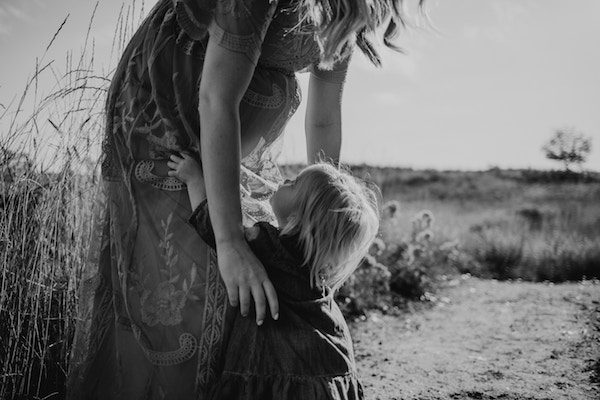Warning: Undefined array key "titleWrapper" in /home1/lastinj7/public_html/wp-content/plugins/seo-by-rank-math/includes/modules/schema/blocks/toc/class-block-toc.php on line 103
If a divorce is impending, it’s best for parents and families alike to learn about the effects of divorce on children. Furthermore, in this article, we’ll discuss how to help your children navigate the effects of divorce, so the change causes minimal damage.
Related Article: Divorce Counseling: What It Is And When To Get It
Contrary to most articles on divorce, I believe this situation can be an opportunity to teach your kids coping skills that will empower them to deal with life’s inevitable challenges. So, while this article will cover the effects of divorce on children, the meat and potatoes of this article will be how we can help children through divorce.
Below you’ll find a list of the effects of divorce on children, and then we’ll review ways to help your kids work through the divorce. You can use the tactics and suggestions outlined in this article to help kids manage their emotions during a divorce and other situations. What you’ll find here is not just something you can use for one-time, but something that parents can use to help their kids manage the pains of life.
As much as none of us like to think about it, divorce happens quite often. Many children, myself included, have been through a divorce and came out alright. Unfortunately, none of us can escape the pains of divorce, so we won’t avoid the effects of divorce on children. Instead, we’ll work with the effects and look at how parents and anyone can best support children through this life transition.
Aside from the hard-life transition of divorce, this experience can help parents utilize proven methods to teach their kids about; coping skills, emotional intelligence, navigating hard feelings, and strength in the face of adversity. Because all of us will confront challenging situations, a divorce can become a learning tool for parents and children.
Before we dive into how to help children cope with divorce, let’s look at the effects that divorce has on children.
Related Article: The Stages Of Grief In Divorce And How To Get Through It
Table of Contents
Your Child’s Emotional Life Will Be Disturbed
One of the most apparent effects of divorce on your child will be how their physical and emotional life will be disturbed.
The effect of a divorce on children will impact how they feel about the world.
Divorce brings uncertainty, and therefore, it disrupts the emotional life of all children.
As your relationship begins to fall apart and nears divorce, your kids will feel it.
Their sensitivity will likely make them act out. Or they’ll show other emotions that are intense, emotions such as:
- Anger
- Anxiety and anxiousness
- Frustration and moods swings
- Resentment towards others
- Sadness and bouts of emotional instability
- Trigger responses to your requests
- Sullen, quiet, and withdrawn
- Emotionally shut down and silent when asked how they’re feeling
- Increased neediness
Those emotions can apply to children of all ages, but if we look at how kids that are teens, we’ll find that their emotions are more likely to entail:
- Withdrawn
- Increased sense of ‘I don’t need you.’
- Rebelliousness
- Aggression and anger
- Distant and defiant
The difference between a little kid and an adolescent can be pretty big, but the remedy to help your kid deal with the effects of divorce is the same regardless of age. We’ll go over how to help kids cope with divorce later. Right now, let’s look at other effects of divorce on children.
Your Child May Become Needier Or More Distant
The reality that your parents are getting divorced makes kids feel they only have two options.
They can either try to get closer and be more clingy in hopes that maybe their parents will stay together or that by being clingy, they can remedy the insecurity of their parents splitting.
Kids’ other choice is to distance themselves, become more distant, and care for themselves. The mindset is, “if I can’t trust them to stay together and keep the home safe, I will have to take care of myself.”
Your Child May Become More Defiant And Less Trusting
If your child can’t trust things at home to be stable, it’s hard to trust anything else.
The effects of divorce on children is they’ll tend to lack trust in authority figures. They’ll withdraw their faith in a world that once promised them safety, security, and accountability.
Although it’s hard to watch children go through this process, there is a solution, something we’ll discuss in the section below on how to help your child deal with the divorce.
Your Child May Struggle To Share Their Feelings
Emotional safety is founded on trust.
Divorce tends to breed distrust in a world that was once stable.
If you’re going through a divorce, if your relationship looks like it’s headed that way – you can count that your child will find themselves struggling to sort out and share their feelings.
Where there used to be a sense of trust that home was safe and stable, the divorce brings in new feelings that maybe the world isn’t the safe place your child once thought it was.
Your Child May Shut Down Emotionally Or Exhibit Mood Swings
When humans are forced to confront difficult situations, we have two choices:
- Open up ourselves fully to the discomfort and fears that arise
- Close down and keep ourselves safe from the pain, sadness, and pain
Since our kids have likely never confronted such a challenging situation, they’ll likely shut down. Much like soldiers become shell-shocked from the atrocities of war and emotionally close up, our kids are likely to close their hearts and hide their feelings from us and others.
This part is pretty much universal to all humans. When we experience a great deal of pain, we shut down. How else can any of us keep our hearts and minds safe? If we’re overwhelmed and dealing with something that is pretty much incomprehensible, our minds and hearts have to close off to the experience to protect us.
As parents, this is where we can help our kids. Therefore, parents must learn the strategies below to counterbalance this natural reaction to divorce.
Below, I’ll share how to connect with your kids during and after divorce to ensure you can help them manage their feelings so that these emotions don’t turn into something poisonous.
Your Child May Resent One Or Both Parents
When my adopted parents divorced, I didn’t know how to deal with it.
Inside I thought it was my fault. Externally I kept it quiet.
Going back and forth drove me crazy.
I couldn’t resolve how or why it happened.
Living in a world where television and kid’s books showed me black and white reasoning – someone had to be blamed.
Unsure of how to reconcile, I landed on the understanding that it was my Mom’s fault.
For years I adamantly believed she was to blame, and with that in mind, I wouldn’t visit her and kept myself distant from her.
Looking back, I know that my parents could have helped me avoid these conflicting emotions by talking to me about what had happened (in a way that matched my age, of course).
How To Talk To Your Kids About Divorce
Your kids need to know if the divorce is already happening or around the corner.
This life transition will rock your child’s world and make them question their sense of safety in an uncertain world.
The sooner you can set your child aside and explain to them what’s happening, the better.
While we may want to save our children from the pain of a partnership ending, we can’t protect them from facts indefinitely.
Taking time to share with your kid shows them that they can talk about life’s challenges. Likewise, we can tackle the struggles of life by talking about them.
By talking to your child about the divorce, you ensure that they understand it’s not their fault. You tell them that because you can talk about the situation, they too can talk about it with you.
When my parent’s marriage was drifting, I knew well before they ever talked to me. Similarly, your kids take notice of everything, and they likely already know something is off. It won’t help to wait; instead, talk to them as soon as possible. Talk to your kids before they start to make up their ideas about what’s happening.
In this podcast interview, we talk about raising confident kids
Help Your Kids Deal With Divorce With Emotional Intelligence
When you talk to your kids, work to help them name their emotions.
This simple tactic of naming your child’s feelings has been thoroughly researched and shown to help kids cultivate emotional intelligence.
If you are unsure what, emotional intelligence is, let me summarize it simply here.
Emotional intelligence is a person’s ability to handle, manage, and work with emotions. Helping children name their feelings can help them take power over those overwhelming feelings.
Divorce can come with a lot of scary thoughts and feelings. Emotions of fear, guilt, sadness, and thoughts of abandonment can surface. Helping your child name those feelings can gain power over those sensations to help your child not become overwhelmed or controlled by their emotions.
If you see your child crying, you can say, “I know this is scary. I know this makes you sad.”
Another way to help your kids vocalize their emotions is by naming them and asking questions. For example, if your child seems sad, you can say: “It seems like you’re sad. Are you feeling scared or sad?”
The point here is to help your child put a name to their emotions. Whether you have older or younger kids, this method works pretty much the same.
The formula works like this:
- Take notice of what your child is feeling
- Help them put a name to emotions by stating what you see or asking questions
- Let your child talk and help them put a name to the emotions they’re exhibiting
This may sound fairly simple, but the data on teaching children emotional intelligence is astounding. In some of the latest research, we see that this simple tactic helps children become better students, better workers later in life, and even better spouses to their partners.
How To Be With Your Child If They’re Distant During Divorce
When we hurt, we tend to push others away.
Children and adults alike will feel crushed by divorce.
If your child is acting distant, it’s a clear indicator they feel pained by the divorce.
The solution for parents and family will be to come closer. Giving your child space to feel their pain will only go so far. Coming close is necessary to help them see that despite the divorce, they are still loved, and it’s not their fault.
As a parent, you can come close by:
- Scheduling a dinner together
- Spending time together on the weekends
- Going to a movie
- Grabbing lunch together
- Playing some games together
It doesn’t matter what you do. What matters is that your kids know that you will always be there for them even if they are scared, sad, or in pain.
Even if your child pushes you away, they will appreciate your efforts to come close. The pushing away is just your child’s way of saying they’re afraid, hurt, sad, worried, and feeling alone. By coming close, you communicate that you love and care about your child.
During your time together, you can help your child navigate the complex sea of emotions that divorce comes with. And while you’re together, you can also remind your child that no matter what, you love them and that what’s happening won’t change your love.

How To Be With Your Child If They’re Needy & Emotional
If your child responds to the divorce by acting emotionally needy, it’s ok.
You can help your child by reminding them that you love them. You care about them, and that you’re not going anywhere.
In the context of a divorce, being emotionally needy is your child’s way to self-soothe the fear of being abandoned.
You can best remedy your child’s fears by coming close, spending time with them, and reminding your child that you love and care about them.







0 Comments